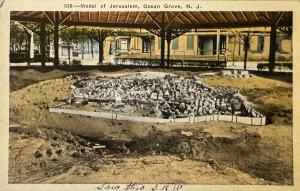 Don’t worry, the Bouchard-Taylor commission recently assured critics. A statistical analysis of the 22 reasonable-accommodation forums proves that only two per cent of the comments made by “citizens of French-Canadian origin” were racist or xenophobic.
Don’t worry, the Bouchard-Taylor commission recently assured critics. A statistical analysis of the 22 reasonable-accommodation forums proves that only two per cent of the comments made by “citizens of French-Canadian origin” were racist or xenophobic.
Another 13 per cent of the citizens said something “negative” about minorities, but consider the good news: 85 per cent were “moderate or pluralistic” or “respectful, even when they were off topic,” Gérard Bouchard told the Montreal Gazette.
Alas, the tragicomedy of this commission and the entire “reasonable accommodation” debate cannot be quantified or so easily dismissed. Did applause meters gauge the ovations that some of the hostile comments received? Did the commission’s statisticians compare the loudmouths’ coverage to the pluralists’ coverage?
Just as a good attorney never asks a question to which he or she does not know the answer, such well-educated commissioners should have known that their lovely forum risked showcasing the haters among us. In today’s media environment, the bad usually upstages the good. The hostile make headlines, the shrill get heard.
Moreover, the commission itself was created after a string of petty complaints about immigrants and ethnics daring to be different were exaggerated into a full-blown crisis by strident xenophobes feeding sensation-seeking reporters. The commission played into their hands, giving the narrow-minded a platform for broadcasting their views – and feeling validated by the applause they received. As a result, rather than teaching bigots to hide their prejudices in shame, xenophobes learned how to become local heroes and have their views taken seriously.
The commission’s greatest failure stems from the silence we have heard in reacting to the bigots. Had Quebec Premier Jean Charest – or any other natural leader in society – denounced the bigots in a searing, dramatic fashion that the media could have showcased, the commission would have had more positively dramatic results. The uncomfortable silences and awkward, half-hearted defences amid the bigotry are part of the hearings’ depressing narrative – and a fact of life that liberal-minded Quebecers must shamefacedly acknowledge.
In fairness, the commission raised an interesting democratic dilemma, worthy of the kind of brilliant analyses Charles Taylor has produced in his academic work. In a democracy, free speech allows all kinds of views to be expressed. Those of us with faith in the free marketplace of ideas trust the good ideas to drive out the bad ones. Moreover, the only thing worse than a travelling show that unwittingly showcased some of Quebec’s racists and haters would have been a sanitized, politically correct forum that lacked authenticity.
The commission hearings – and this entire issue – have provided a wakeup call to those who long preferred to ignore Quebec’s provincialism. Even the phrase “reasonable accommodation” sends a message to immigrants, ethnics and others that they’re not welcome. It unreasonably pits the supposedly accepting majority against the unacceptable or tolerated minorities.
Both Quebec and Canada have too many faces, too many different groups, to see this dynamic as healthy. The Québécois themselves may be a majority in parts of Quebec, but they are a minority throughout Canada. Would those who treat tax-paying immigrants and ethnics as outsiders be willing to put up with a similar kind of condescension and questioning on a national level?
For many in Quebec’s Jewish community, a year’s worth of insulting controversies and prejudiced proclamations has been sadly instructive. True, the hostility expressed against Muslims shows that the issue is more about provincial xenophobia and fear of the “other” than it is about traditional anti-Semitism. But that offers little solace, especially as Jewish community leaders are forced to beg for continued school funding, as well as to justify the now-demonized kashrut label on grocery products and abjectly claim that the new, heavy-handed “Ethics and Religious Culture” course being imposed on Jewish day schools is somehow acceptable.
It seems that Jewish leaders so fear the anger expressed by the “two per cent” and “13 per cent” that they forgot the value of justified, righteous indignation. It also seems that too many of our non-Jewish and non-Muslim friends forgot the value of eloquently, passionately and boldly standing up for enduring Canadian and western ideals of democracy, diversity and true acceptance. And it seems the time has come to remind our neighbours and ourselves that love and liberty are fragile flowers that we all need to tend vigorously, and at times aggressively.






